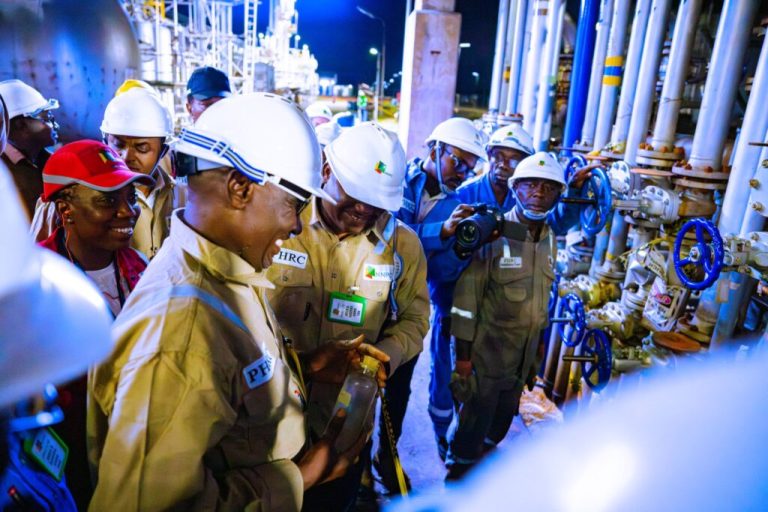-
Says plant begins truck-out of products
From Adanna Nnamani, Abuja
The Nigerian National Petroleum Company (NNPC) Ltd. says it has fulfilled its pledge of re-streaming the Port Harcourt Refining Company (PHRC), signalling the commencement of crude oil processing from the plant and delivery of petroleum products into the market.
NNPC said trucks began loading petroleum products, which include Premium Motor Spirit (PMS) or petrol, Automotive Gas Oil (AGO) or diesel, and Household Kerosene (HHK) or kerosene, on Tuesday, while other product slates will be dispatched as well.
According to a statement from the company, the group CEO, Mr. Mele Kyari, described the commencement of the loadout activities as a monumental achievement for Nigeria, which signifies a new era of energy, independence, and economic growth for the country, while speaking at the refinery in Port Harcourt.
“The GCEO particularly thanked President Bola Ahmed Tinubu for his unwavering support and understanding towards the rehabilitation project and for his persistence in ensuring energy security for the country.
The Board of Directors of NNPC Ltd. and the entire workforce were also commended by Kyari for their dedication and support, which culminated in the refinery’s streaming. He also commended the contractors for doing a great job in ensuring that the refinery is delivered despite all challenges.
“The GCEO further thanked Nigerians for their patience and for the legitimate expectations of the company to deliver on the other refineries.
In his remarks, the Chief Executive of the Nigerian Midstream & Downstream Petroleum Regulatory Authority (NMDPRA), Mr. Farouk Ahmed, congratulated the NNPC Ltd for the milestone and assured of his agency’s continued support towards the completion of rehabilitation work at the other refineries.
The PHRC rehabilitation project is an Engineering, Procurement, Construction, Installation, & Commissioning (EPCIC) project that is aimed at restoring the refinery to full functionality and renewal. It has achieved over 16 million manhours with zero Loss Time Injury (LTI),” the statement said.
